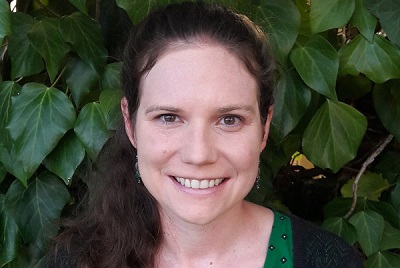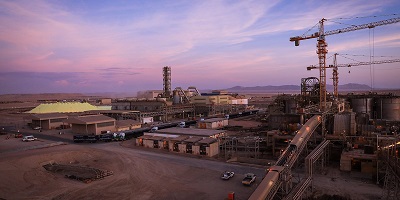
De Beers geologist turns advocate for women’s equal employment in diamond mining

Dr Evelyn Mervine, a Climate Change Specialist working for De Beers is not only concerned about the impact of climate change on future mining operations, she is also an outspoken advocate for promoting women in the diamond mining industry.
As an American, a career in diamond mining was not foremost on her mind when she started her professional career. However, after a short stint at a De Beers Anglogold Ashanti joint venture, she moved to De Beers Marine as a marine geologist.
For the De Beers Group she provided technical geological services which put her on track to move from De Beers Marine to the Group. “I have recently moved into a new role in the company as a Climate Change Specialist and I am also Project Lead for Project Minera, an innovative R&D programme investigating the potential to store carbon in kimberlite tailings to offset mine emissions.
She has a colourful academic background having spent 10 years in formal education. After her graduate studies she read a PhD in marine geology at the renowned Massachusetts Institute of Technology.
“During my PhD studies, I married my husband, Jackie Gauntlett, who is South African and also a geologist, and I moved to Cape Town” she said sketching the course that brought her to De Beers Marine.
Asked what attracted her to the De Beers Group, she stated that her prior impressions were negative. She said “However, after I moved to South Africa and started to work with geologists and engineers from De Beers Group, I realised that the company does enormous social good. I now have great respect for the company. Also, diamond geology is fascinating, and I was attracted to the strong R&D culture in De Beers Group.”
She is outspoken about the challenges women face in mining saying these are often intimidating in a male-dominated environment. “I am used to working in such environments, but I always feel better when there is one other woman or, better still, a few women, on a team with me. Some of the challenges are relatively small – for example, when visiting mine and laboratory research sites, I sometimes struggle to find personal protective equipment (PPE) that fits comfortably. I think De Beers Group should look at investing in some PPE designed for women’s bodies, including some maternity options.”
She describes the small challenges and subtle sexism as perhaps the most difficult issues for women to deal with. “I haven’t experienced much blatant sexism while working in the mining industry, but subtle sexism persists. I routinely hear comments such as: ‘You’ll want to slow down your career when you have children.’ I doubt anyone would make a similar comment to a man. Also, while De Beers Group employees are generally fairly good in their treatment of women, sometimes contractors are not as good.”
The only fair dispensation she sees for the future is where women have equal participation and representation in the industry. “I think a big challenge will be transitioning from there being ‘token’ women in the industry to there being many women – ideally, one day 50%. Perhaps studying some success stories could be helpful. For example, Voorspoed mine in South Africa employs a high number of women.
She is adamant that equal pay for equal pay must be a company’s driving principle in human resources saying that she would like to see De Beers Group investigate its pay gaps.
“Do women receive the same pay as men for equal work? If not, that needs correcting. In addition, I think one of the best ways for De Beers Group to promote gender equality would be to offer paternity benefits in all the countries where the company operates. Also, when discussing women in the workplace, we should carefully consider the terms we use, such as ‘work-life balance’. We rarely use terms such as this when discussing men. These terms tend to imply that women must be superheroes who balance everything or that women are missing something if they have no children or if they have a partner or other person who is a primary caregiver for their children.”
But she has good practical advice for young women who aspire to work in the mining industry and particularly in diamond mining. “Find yourself a strong female mentor as this can be very helpful and encouraging. Try not to worry too much about society’s expectations. You can define your own path. Focus on your passion for your work and don’t be afraid to take on big challenges and to move around for opportunities. If you want children, you can have them and have a successful career. If you do need to make some adjustments to your work when you have children, remember that you will likely have a career of 30 years or longer, and fewer adjustments will be needed once your children are older,” she said.











































